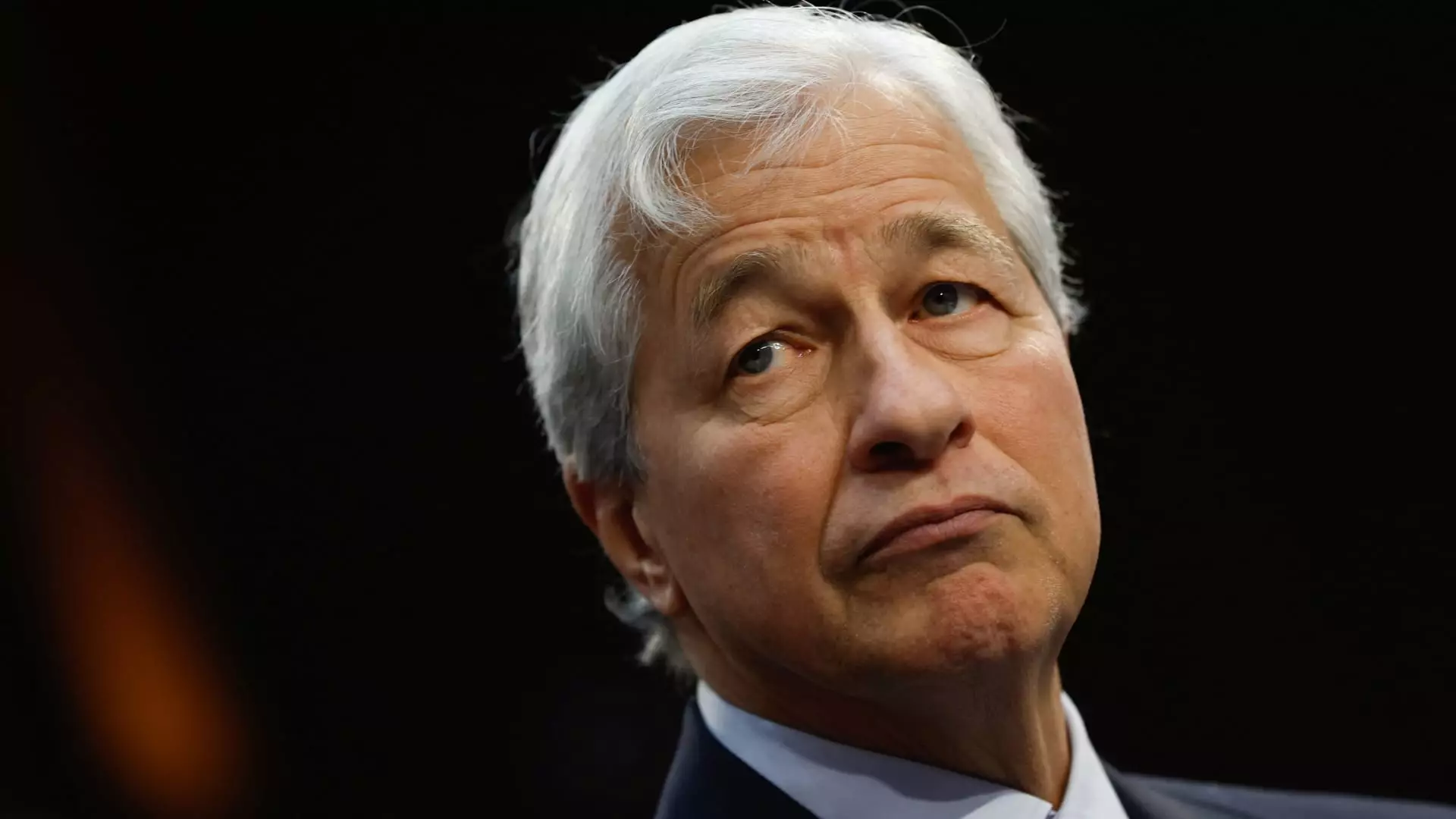Jamie Dimon, the CEO of JPMorgan Chase, has recently expressed serious concerns over the escalating geopolitical risks that are threatening global stability. In light of ongoing conflicts in the Middle East and the persistent chaos resulting from Russia’s invasion of Ukraine, Dimon highlighted the growing treacherous nature of global conditions during a recent earnings call. He pointed out that the ramifications of these conflicts extend beyond immediate human suffering, with potential long-term impacts on the global economy and historical trajectories.
His remarks underscore a pivotal moment in international relations as the established order that has persisted since the end of World War II seems to be fracturing. Dimon emphasized this fracturing as he noted rising tensions not only in the Middle East and Ukraine but also the deteriorating relationship between the United States and China. Such dynamics create an environment ripe for “nuclear blackmail” from hostile nations like North Korea and Iran, a concern that he has grown increasingly vocal about in recent weeks.
Impact of Regional Conflicts
The situation in Israel and Palestine has reached a critical junction as the conflict marked its one-year anniversary since Hamas’s surprise attack on October 7, 2023. The violence has escalated tragically, leading to the loss of tens of thousands of lives and the proliferation of fighting across multiple fronts. Recently, Israeli airstrikes in Beirut resulted in numerous casualties, further complicating an already volatile landscape. The Iranian government has also intensified its military activities, launching a barrage of missiles against Israel, which raises questions regarding the potential for a broader confrontation in the region.
This regional instability not only exacerbates humanitarian crises but also poses tangible threats to global oil supplies and economic structures. Dimon articulated the urgent need for decisive leadership from the United States and its allies to navigate this increasingly complex geopolitical chessboard.
Future Economic Concerns
Despite some signs of economic resilience in the United States, Dimon remains cautious about the country’s economic outlook. The Federal Reserve has made strides to foster a soft landing for the economy, yet substantial hurdles linger on the horizon, including significant fiscal deficits and persistent infrastructure challenges. Dimon pointedly remarked on the necessity of addressing trade restructuring alongside the surging costs and remilitarization that nations across the globe are undertaking.
His caution signifies the broader uncertainties that investors and economic players must navigate amid the backdrop of escalating global conflicts. Investors may find themselves grappling with the dual challenge of seeking opportunities in a recovering economy while remaining vigilant about external shocks that could derail progress.
Jamie Dimon’s insights present a stark depiction of an increasingly volatile world. As geopolitical tensions rise and the specter of economic destabilization looms, the necessity for strong leadership and strategic foresight has never been more critical. The global community must come together to address these pressing challenges in order to ensure lasting peace and stability.


Leave a Reply